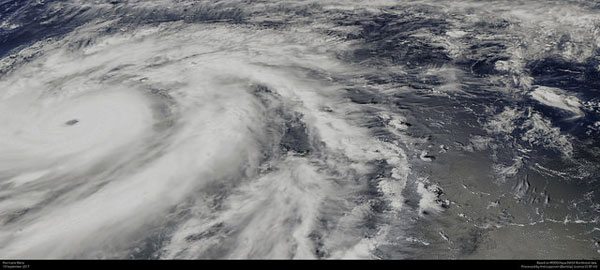
September 28, 2017; New York Times
Yesterday, the Trump administration agreed to a 10-day waiver of a 1920 shipping law known as the “Jones Act” for Puerto Rico to address disaster relief efforts. The waiver enables Puerto Rico to import needed supplies from nearby Caribbean and Latin American nations rather than have to rely on shipment of supplies from U.S. ships.
According to the New York Times, “The decision was made by Elaine Duke, the acting head of Homeland Security, and comes after Defense Secretary Jim Mattis determined that doing so would be in the interest of national defense.” Under the Jones Act’s language, technically suspensions can only be made for reasons of national defense. Humanitarian reasons or the possibility of reducing shipping costs are not valid legal reasons for suspending the law.
Of course, Puerto Rico is still reeling from the impact of Hurricane Maria, a category 4-storm at landfall. Maria was the first category-4 storm to directly hit Puerto Rico since 1932. According to Puerto Rico Governor Ricardo Rosselló, a week after the storm hit only 689 of Puerto Rico’s 1,100 gas stations had opened. Even at open stations, many lines stretch for a quarter-mile. The Times added that, “Increasingly desperate people have spent hours lining up outside grocery stores, banks and gas stations, only to sometimes leave with nothing.” Telephone service is also interrupted, with 73 percent of lines still out as of this past Monday.
What is the Jones Act? As the New York Times explains:
Sign up for our free newsletters
Subscribe to NPQ's newsletters to have our top stories delivered directly to your inbox.
By signing up, you agree to our privacy policy and terms of use, and to receive messages from NPQ and our partners.
The Merchant Marine Act of 1920, known as the Jones Act, requires goods shipped between points in the United States to be carried by vessels built, owned and (mostly) operated by Americans. The act also affects the states of Hawaii and Alaska, forcing in those states, as in Puerto Rico, increased “shipping costs for goods from the mainland, which are then passed on to consumers.
The waiver is an important achievement that should help speed Puerto Rico’s recovery from Maria, at least somewhat. That said, many in Puerto Rico would like to see the Jones Act gone for good. Beyond the financial costs, the law also smacks of colonialism. Why should all goods coming to Puerto Rico need to arrive on American vessels?
As one NPR reporter noted, Puerto Rico imports from the U.S. mainland more than 80 percent of its food supplies. An article in Quartz points out that three U.S. transportation companies dominate shipments of food and other imports. A government-commissioned report by former International Monetary Fund economists at the University of Puerto Rico also found that Puerto Rico pays twice as much for U.S. imports than the neighboring US Virgin Island, which is exempted from the Jones Act. The cost to Puerto Rico was $537 million a year as of 2010.
These practices regulating shipping may seem unprecedented, but there are echoes of this practice in early U.S. history. In fact, some historically inclined readers may recall that American colonists in the 1770s did not particularly like the fact that Great Britain regulated imports and exports so that “If a colonist wished to buy French silks, Dutch linens, or Indian tea, he would buy these goods from an English importer.” Although no faces could be identified, legend has it that in Boston some residents were upset enough about this that they even dumped bags of tea into the harbor.
Of course, this is 2017, not 1773. Certainly, the United States today would not want to imitate British imperial policies? Or would we?—Steve Dubb











